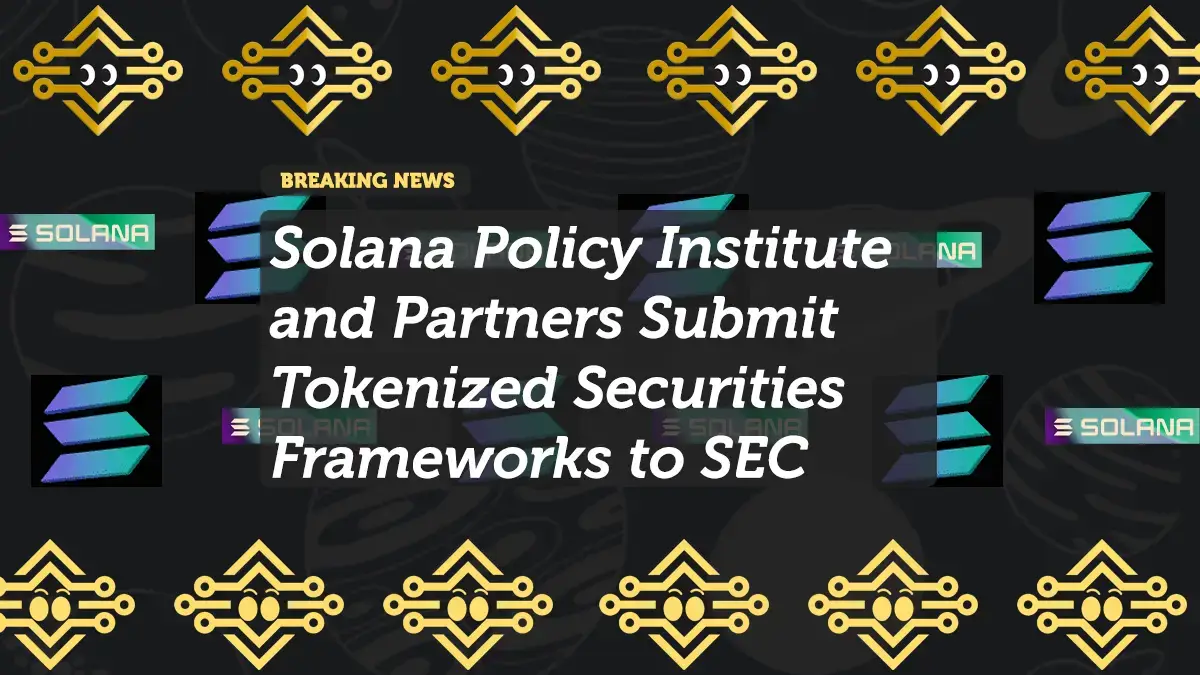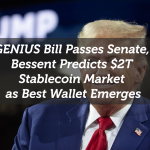
Solana Policy Institute and Partners Submit Tokenized Securities Frameworks to SEC
In a major move toward regulatory clarity in decentralized finance, the Solana Policy Institute (SPI)—a Washington D.C.-based lobbying group—alongside Phantom, Superstate, and Orca, has proposed a bold framework to the U.S. Securities and Exchange Commission (SEC). Their goal? To usher in a new era of tokenized securities that are both onchain and compliant.
The submission, delivered directly to the SEC’s Crypto Task Force, calls for a reassessment of how the agency treats decentralized, non-custodial blockchain protocols.
What Are “Compliant Tokenized Securities”?
The proposal outlines a vision where traditional assets—stocks, bonds, mutual funds—can be issued, traded, and settled entirely onchain, operating 24/7 with real-time settlement and significantly reduced costs. This is no small dream. It’s what Project Open, SPI’s flagship initiative, has been building toward.
Key benefits the group highlights include:
- Real-time settlement with no middlemen
- Dramatically lower costs compared to legacy systems
- Global access and transparent onchain auditability
- Increased market efficiency through automation
But it’s not just about tech. It’s about regulatory modernization—updating laws designed in a pre-blockchain era to work for today’s decentralized systems.
Why This Matters: Breaking From Wall Street Traditions
The SPI argues that blockchain-native protocols like Orca (a decentralized exchange) operate in fundamentally different ways from traditional intermediaries like brokers, dealers, or clearinghouses. For example:
- Orca never takes custody of assets.
- Phantom, a wallet provider, simply connects users to the network.
- Superstate builds compliant financial infrastructure designed to tokenize real-world assets like treasuries.
In their letter, the coalition claims these protocols shouldn’t be boxed into legacy definitions such as “exchange” or “broker” under U.S. securities laws.
Instead, they call for exemptive relief—a formal exemption from those classifications for systems that are autonomous, non-custodial, and user-directed.
A Glimpse at Project Open’s Blueprint
Project Open, SPI’s policy roadmap, lays out how U.S. capital markets could be modernized with blockchain as the core infrastructure. The vision includes:
- Tokenizing traditional securities (stocks, ETFs, bonds)
- Real-time compliance checks via smart contracts
- Decentralized trading infrastructure that eliminates single points of failure
- Open access, reducing the barrier to entry for both investors and issuers
“This can restore America’s edge in financial innovation,” SPI wrote. “Without compromising investor protections.”
SEC Engagement: Why Now?
The timing of this proposal isn’t accidental.
The SEC under Chair Gary Gensler has slowly begun warming to the idea of tokenized assets, especially as large players like BlackRock and Fidelity enter the space via regulated ETFs. But there’s still a disconnect between what’s legally defined and how decentralized protocols actually operate.
This coordinated push by SPI and its partners is designed to push the conversation forward.
What They’re Asking the SEC To Do
Here’s what the group is officially requesting:
- Clear guidance on how securities can be compliantly issued and traded on public blockchains.
- Recognition of decentralized protocols as distinct from traditional intermediaries.
- Regulatory carve-outs for non-custodial systems like Orca that do not take user funds into possession.
- Support for real-time, autonomous compliance tools built into smart contracts.
It’s an effort to close the gap between regulation and reality—to help laws catch up to innovation.
The Bigger Picture: DeFi Meets TradFi (Finally?)
This move underscores a broader trend in crypto: bridging decentralized finance (DeFi) with traditional finance (TradFi) without compromising the core principles of self-custody, transparency, and decentralization.
We’re seeing:
- Circle’s IPO and new ETF filings
- Solana-based treasury projects like Superstate
- The rise of tokenized treasuries and real-world assets (RWAs)
- Spot ETFs bringing billions in liquidity
It’s all part of the same arc: a financial system built on open protocols rather than closed institutions.
Final Thoughts: A Turning Point?
Whether the SEC embraces or resists this push remains to be seen. But make no mistake—the pitch to bring securities onchain is louder and more organized than ever.
If adopted, frameworks like Project Open could unlock a trillion-dollar shift toward tokenized finance. If rejected, it may just push more innovation offshore.
“Compliant tokenized securities” might not roll off the tongue just yet—but the race to define and build them is now in full swing.
FAQ
Q: What is Project Open?
A regulatory framework proposed by the Solana Policy Institute for tokenizing traditional securities on public blockchains.
Q: Who submitted the framework to the SEC?
SPI, alongside Phantom (wallet), Orca (DEX), and Superstate (financial infra for tokenized assets).
Q: What does ‘compliant’ mean here?
That securities would follow existing laws—but with exemptions for non-custodial, automated protocols.
Q: Will the SEC approve this?
It’s too early to say, but the submission adds pressure for clear crypto regulation, especially post-ETF approvals.
Q: Why does this matter for investors?
If successful, this could bring trillions of dollars in real-world assets onchain and improve access, transparency, and cost-efficiency for everyone.














